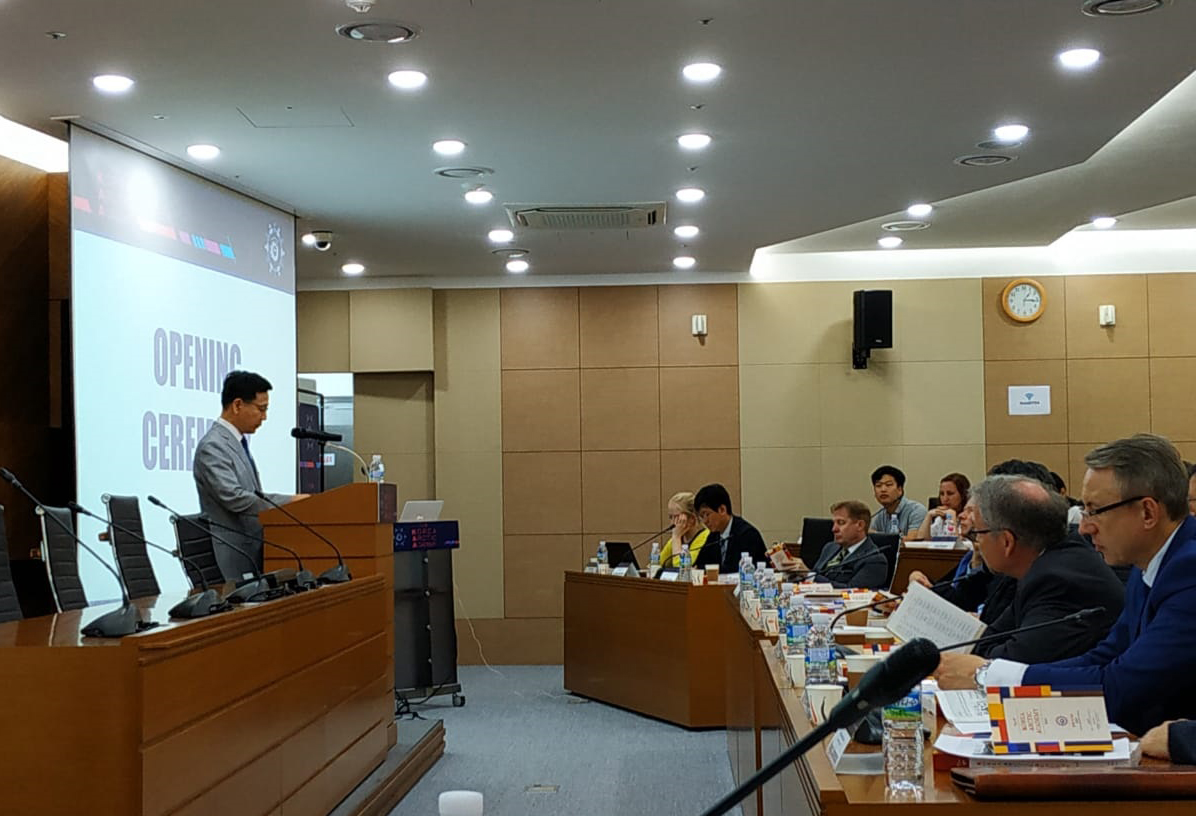
The 5th Korean Arctic Academy is currently taking place under the auspices of the Korean Maritime Institute and the University of the Arctic on July 3-13,2019 in Busan, Republic of Korea. The event approximately gathered 33 students from the Arctic countries and from the Republic of Korea itself.
During the first two days, experts from the Arctic countries gave lectures on the role of their countries in the sustainable development of the Arctic and preserving of environment and biodiversity. The lecturers also stressed the need for international cooperation in overcoming today's world challenges,including climate changing, the most urgent one.
First, Counsellor at Embassy of Canada to Korea Patrick Hebert told about the role of indigenous peoples, national territories and organizations of Canada which are permanent participants of the Arctic Council.
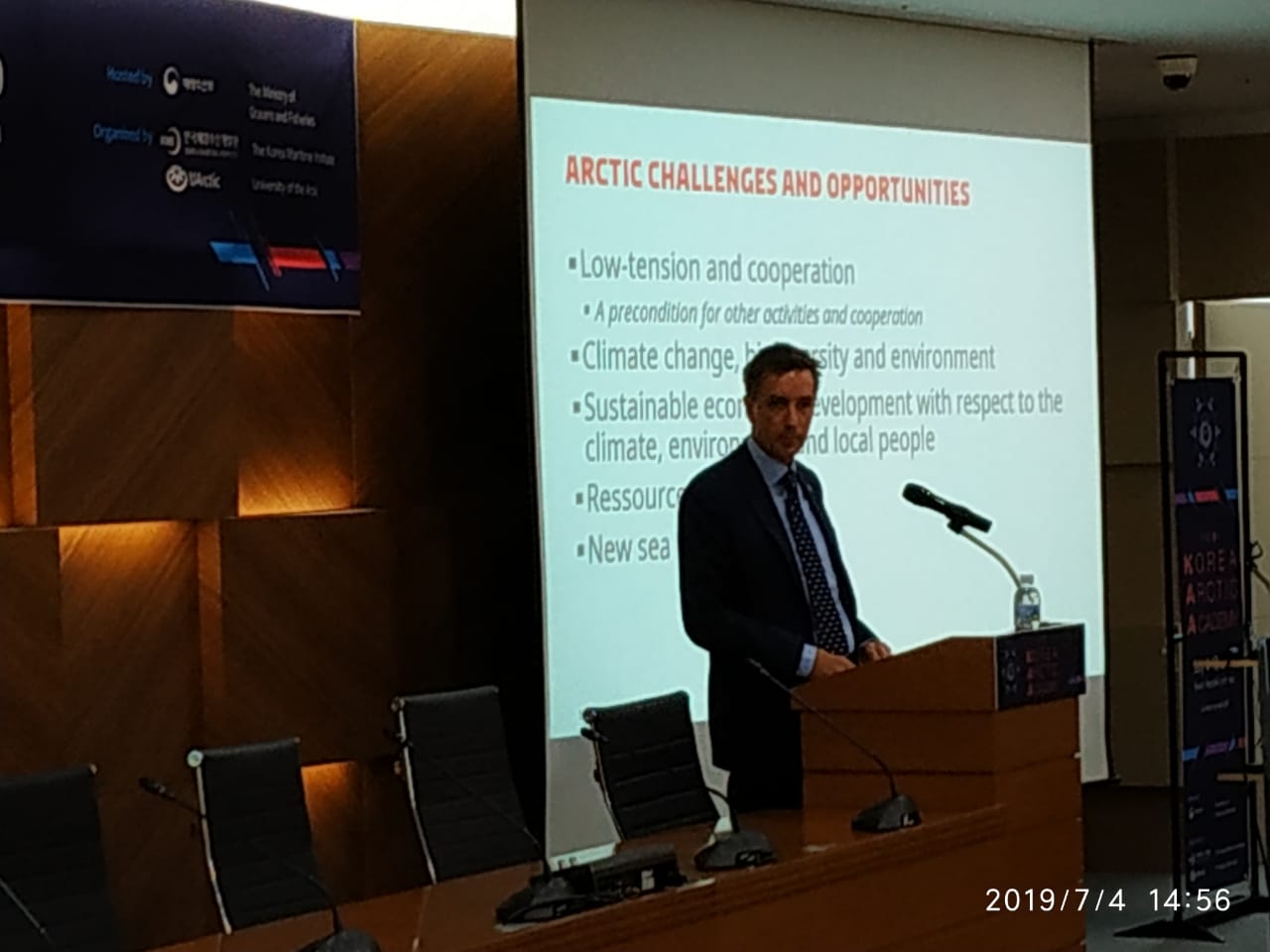
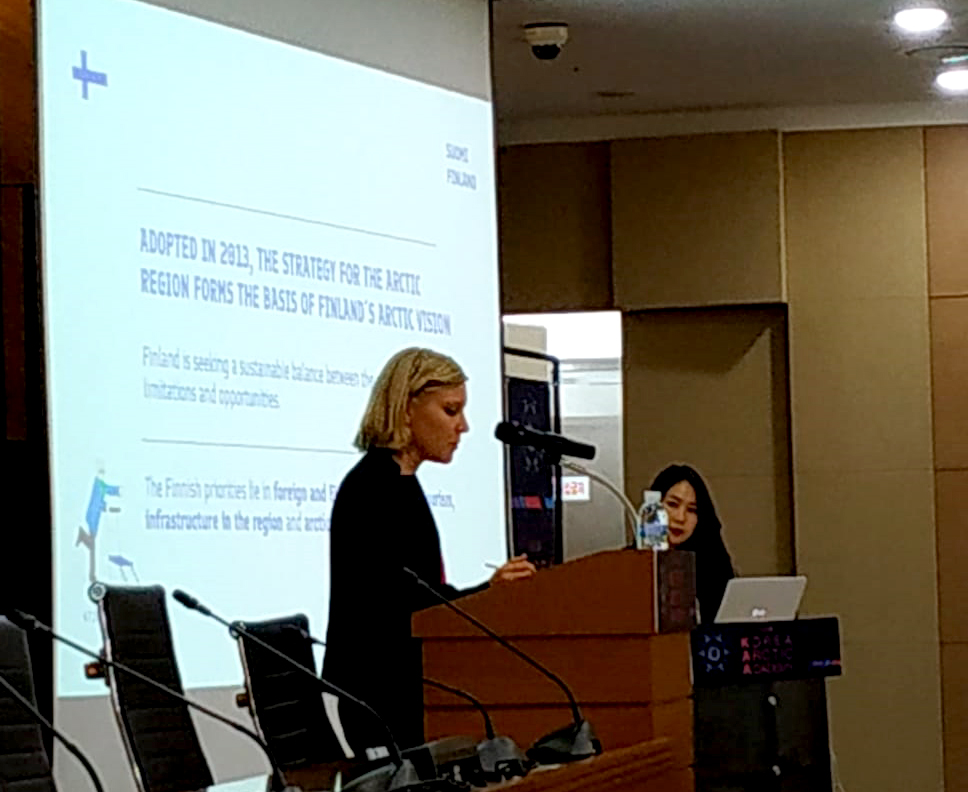
Next, Ambassador at Large, Senior Arctic Official of the Russian Federation Nikolay Korchunov made a speech on Russia's Arctic Policy. He emphasasized the advantage of the Northern Sea Route and the growing interest of the countries of the Asia-Pacific region.
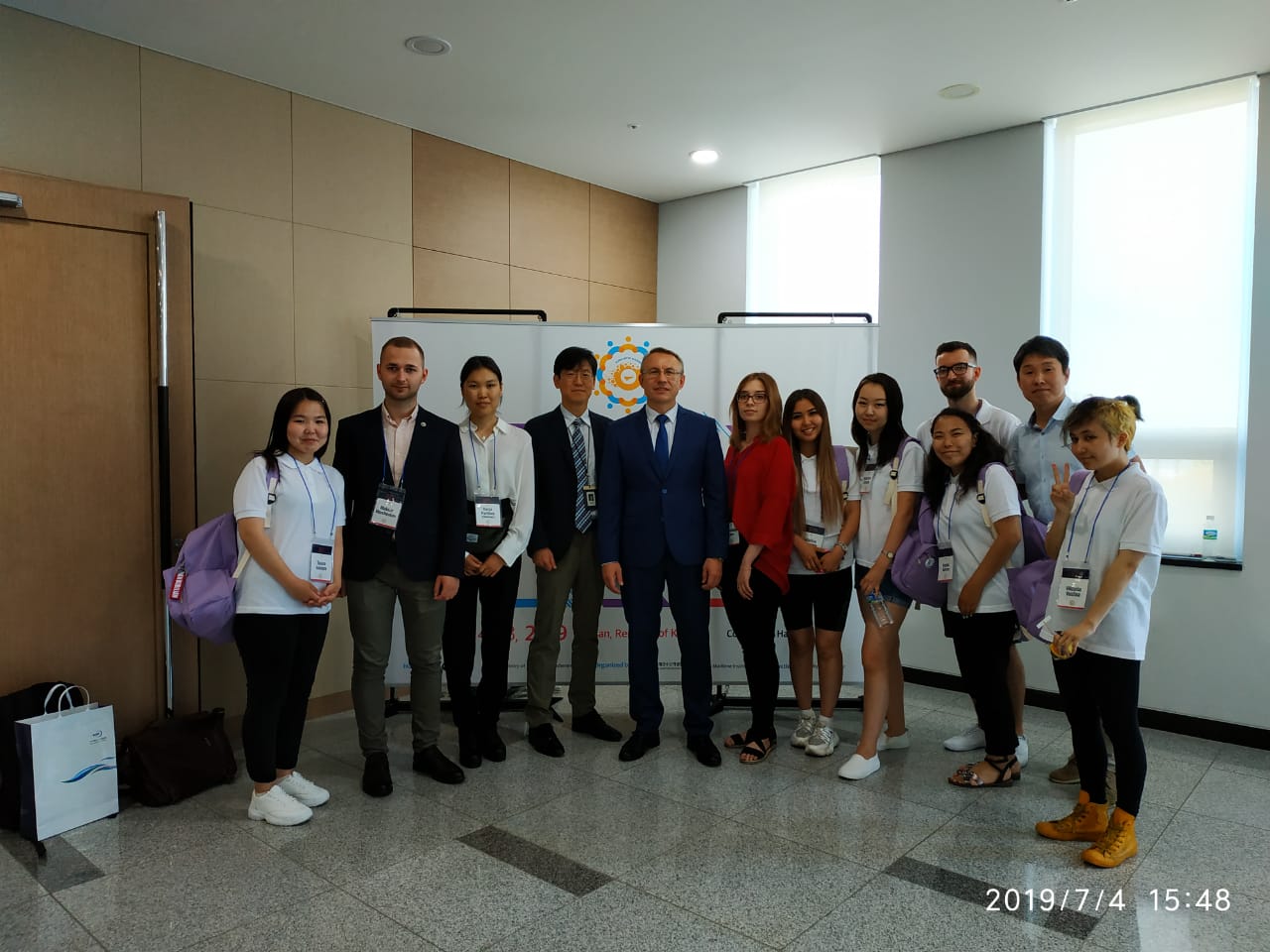
All speakers agreed that the Republic of Korea indeed has made a great contribution to the Arctic sustainable development. Having an observer status in the Arctic Counci, the country is actively involved in the scientific and economic projects and is the world's largest shipbuilding country.
Representatives of the Korean Maritime Institute, Seoul National University and the Korean Polar Research Institute made a report on the Korea’s Arctic policy, scientific and economic cooperation, and the development of infrastructure in the Arctic. Since 1987, South Korea’s GDP has grown 14.4 times. According to this indicator, the economy of South Korea is the twelfth in the world. Trade with the countries of the Arctic is 15%. According to Jong Deog Kim, it is a significant and constantly growing indicator.
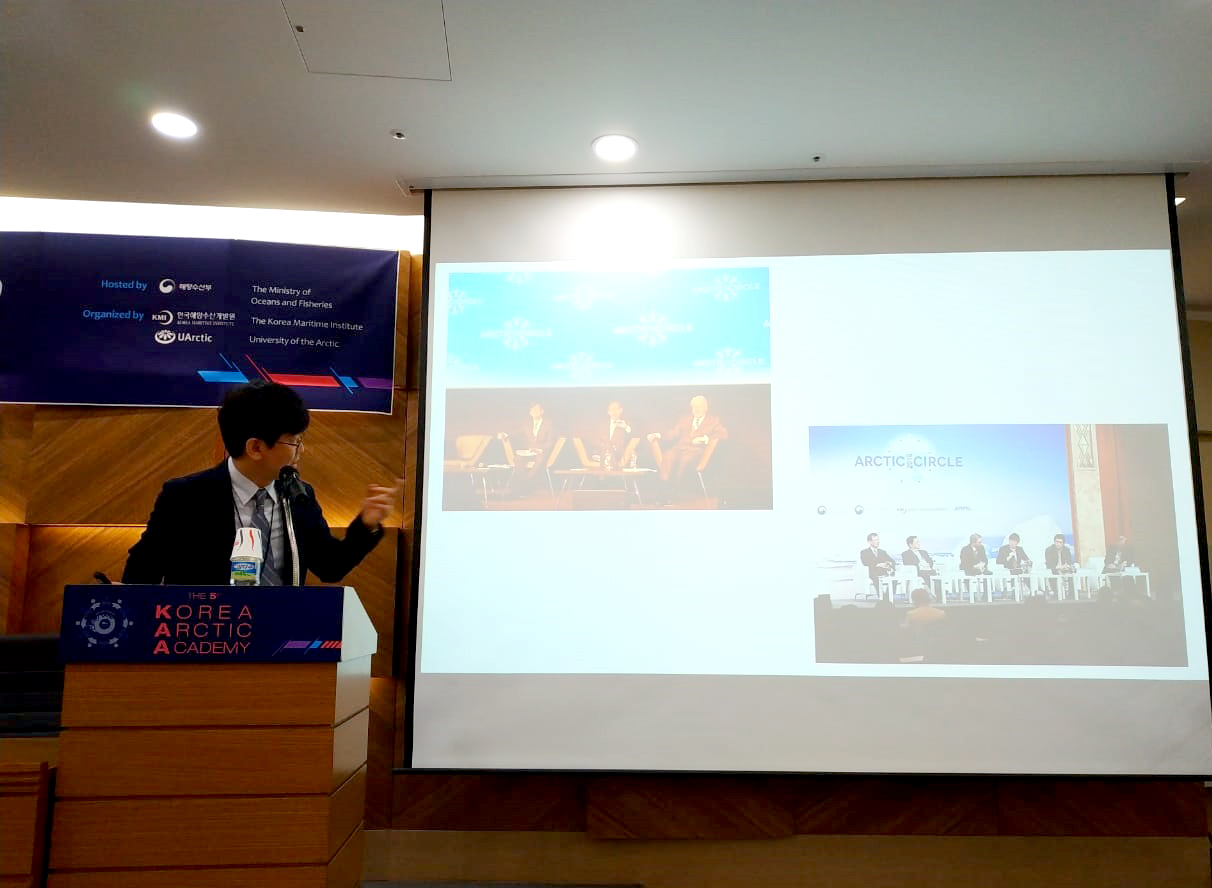
Over 18 years of Korea’s active presence in the Arctic since reaching the South Pole in 1991, the country has gained sufficient scientific experience. It founded research station in Svalbard, received Arctic Council’s observer status, participated in many Arctic projects, including the Northern Sea Route. In 2018, South Korea presented its vision of the Arctic plan for 2018–2022 “Republic of Korea: a pioneer and partner in shaping the Future of the Arctic together”.
Magnus Johanesson, a representative of Ministry of Foreign Affairs of Iceland told about his experience of work at the Arctic Council since its the very establishment. In his report, he also spoke about the main goals and principles of the organization, the increasing role of its permanent participants, working groups and plans for the future.
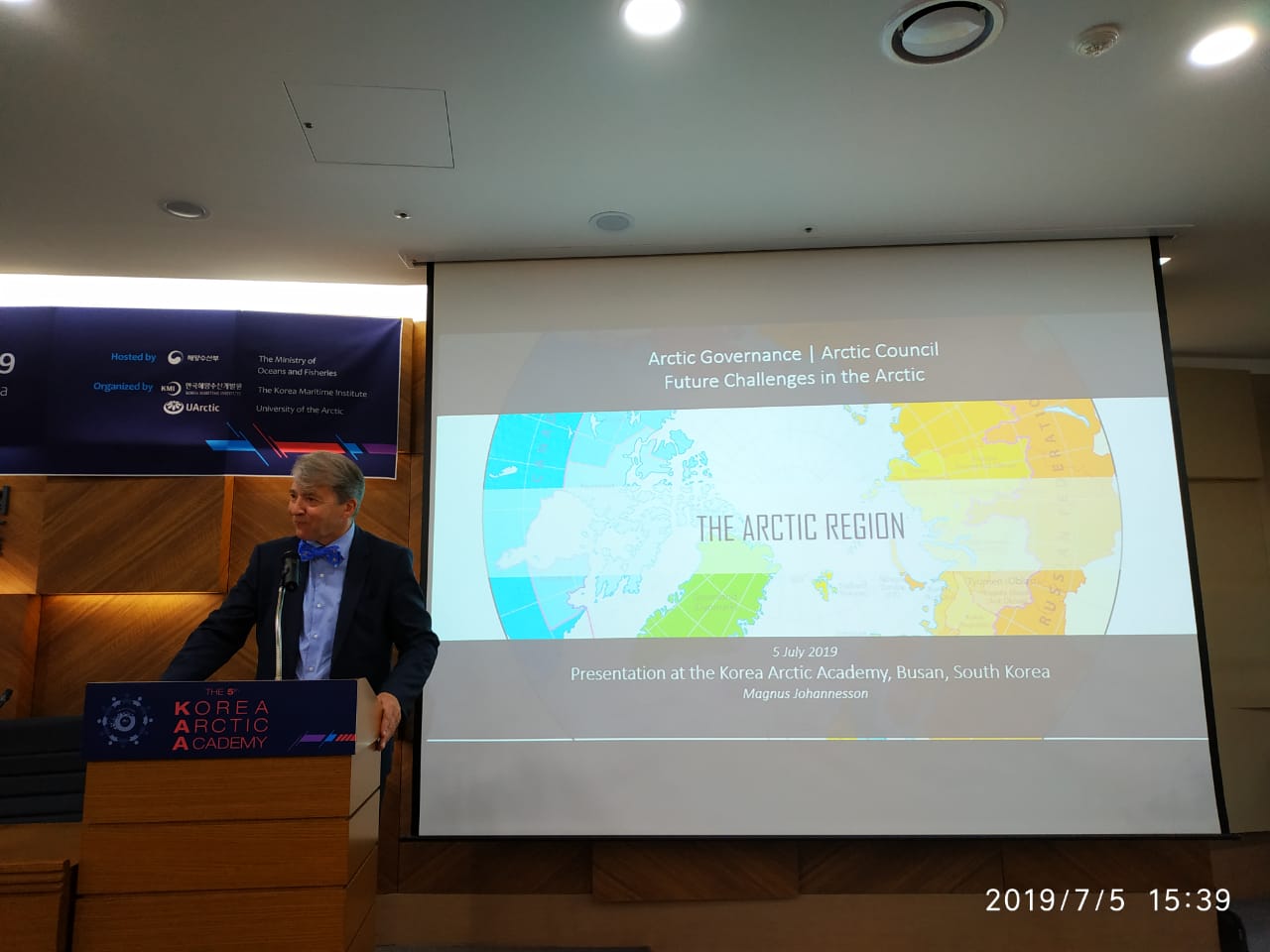
After every lection presentation, students of the Academy had an opportunity to ask the lecturers questions.
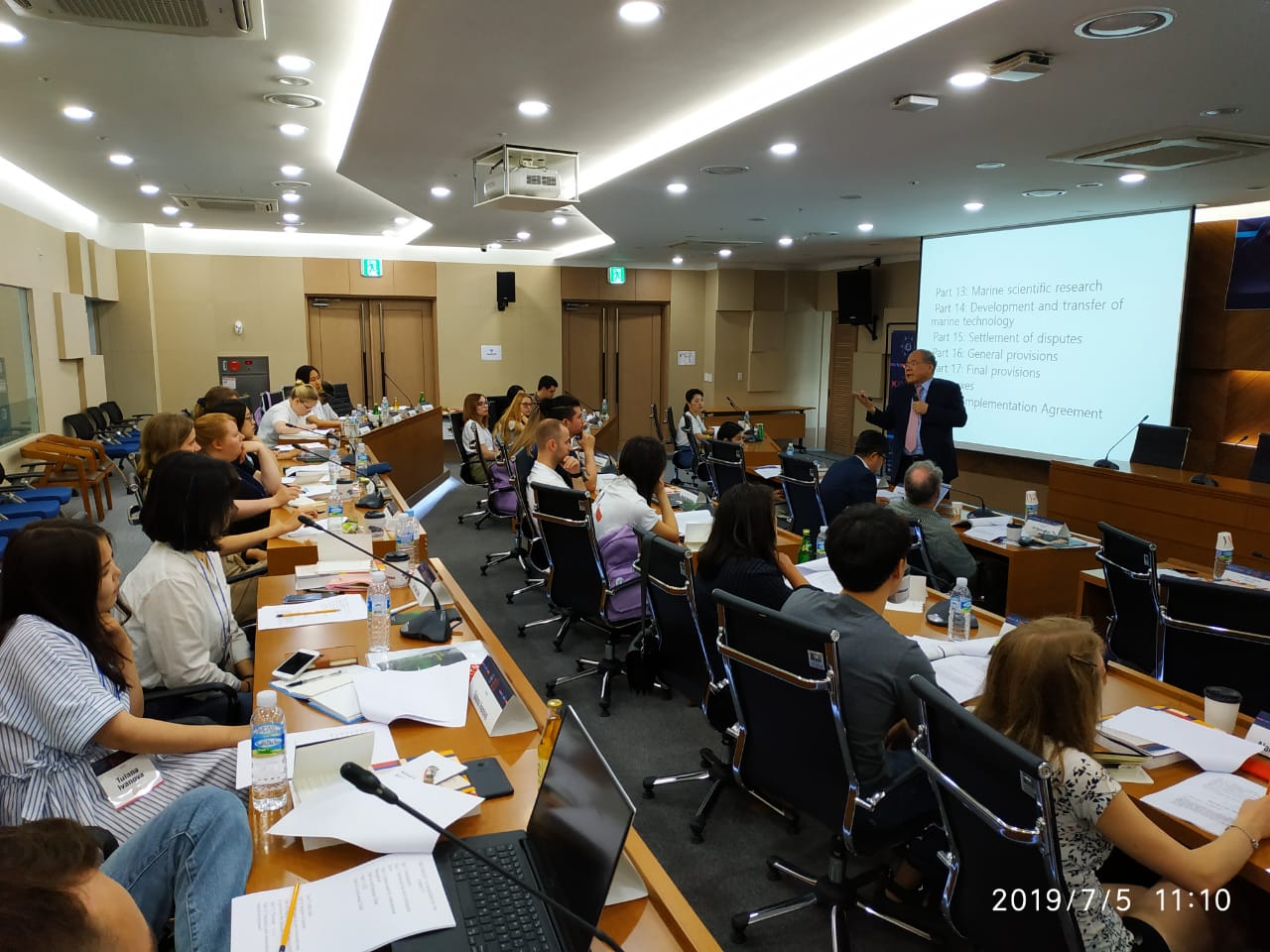
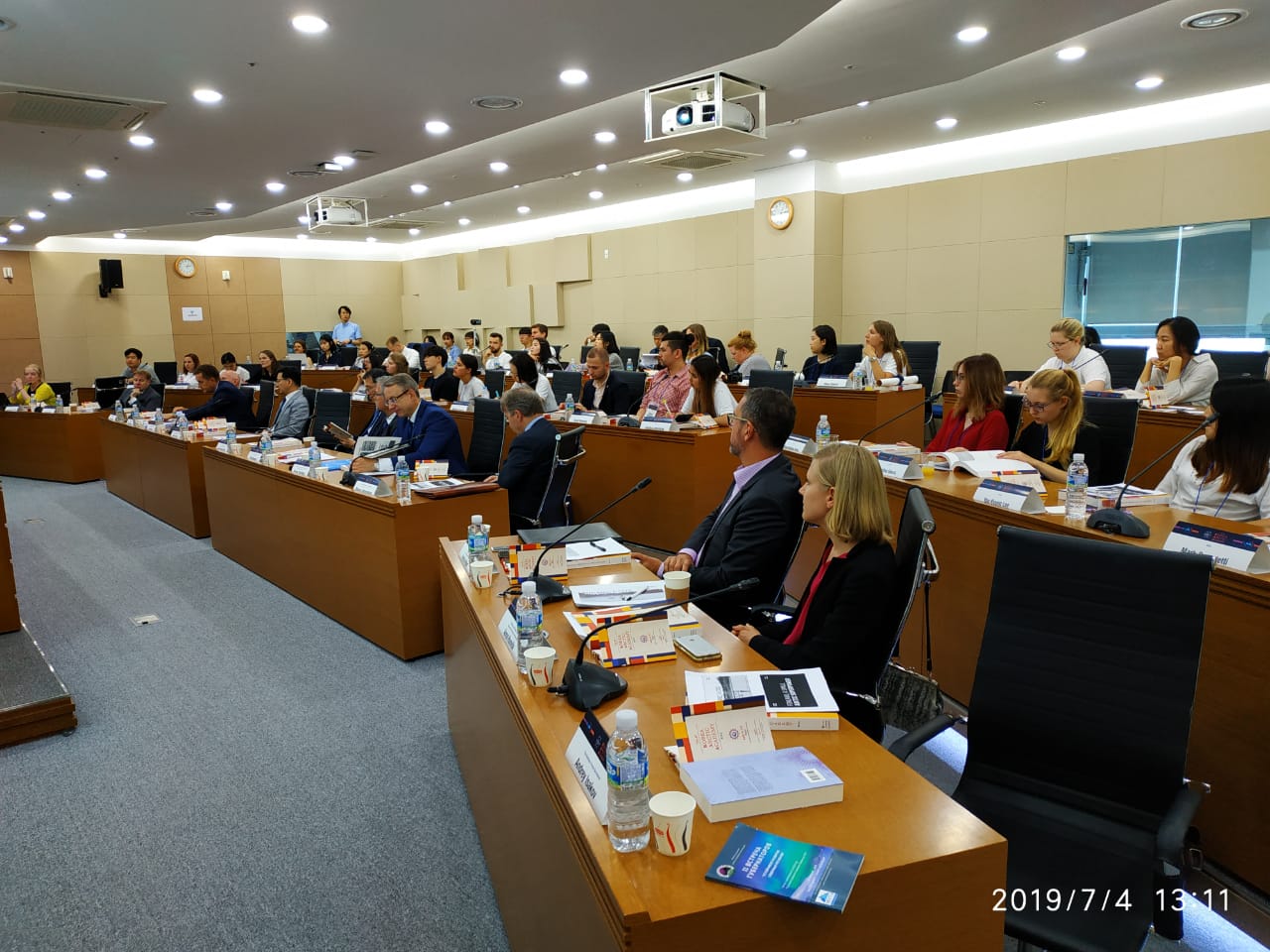
The specialist of the Northern Forum Andrei Isakov made a presentation about the indigenous peoples of the Arctic, their organizations and the challenges they face today as well as possible ways to solve these challenges. He also proposed to the organizers of the Academy to invite representatives of indigenous people for daily workshops on songs, round dances and handicrafts for students. “How can we study the Arctic without having an idea of its indigenous peoples?”, he said.
At the end of the lectures, participant and guests of the event enjoyed the round dances.

Further,students of Academy will to work with teachers of Korean educational and research institutions, visiting shipyard, cultural attractions.
On July 8, the Northern Forum specialist Varvara Parilova will tell the students about the Northern Forum.
